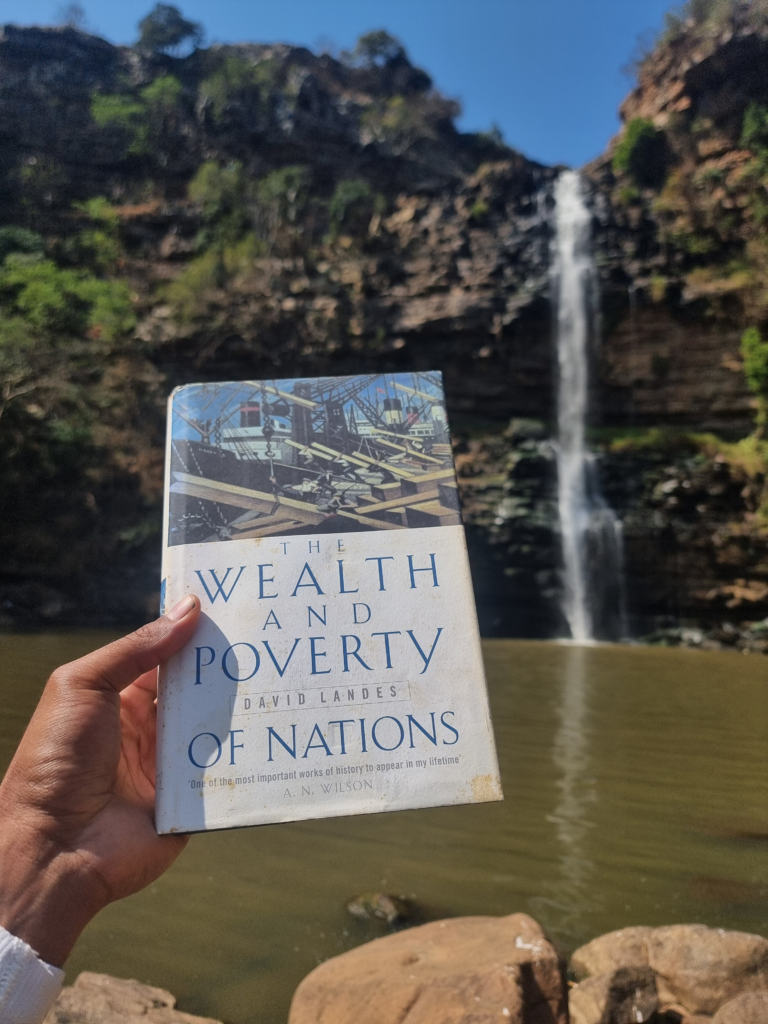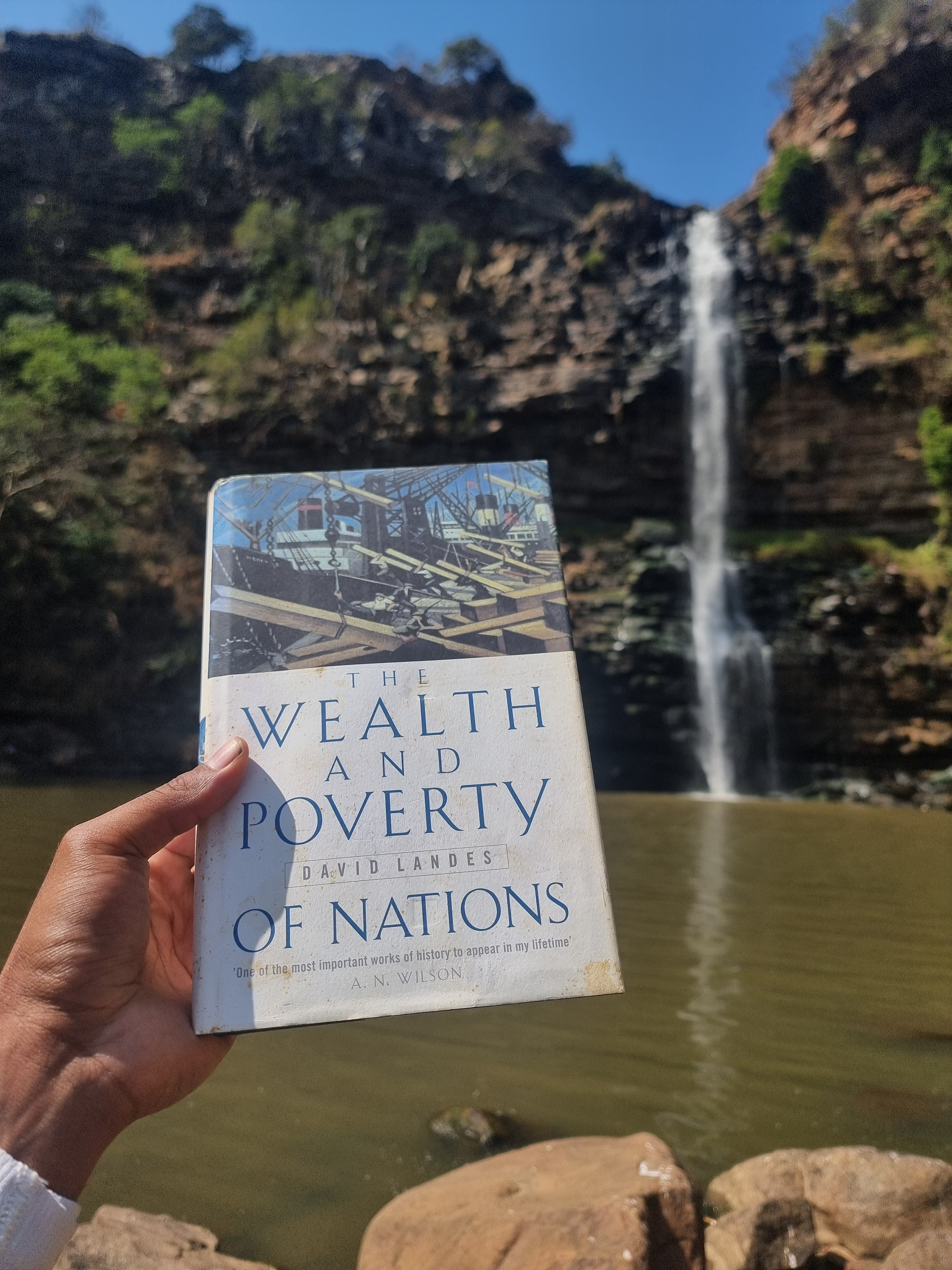
Reflecting on “The Wealth and Poverty of Nations” by David Landes as a South African
Growing up in South Africa, a country characterized by significant economic problems and breathtaking natural beauty, reading David Landes’ The Wealth and Poverty of Nations has been a transformative experience. It offered me a clearer, more unbiased lens through which to view our economic world and understand the complexities of wealth and poverty within our society.
Landes explores the historical factors that contribute to the economic success or stagnation of nations, emphasizing the roles of culture, technology, and political institutions. This prompted me to reflect on South Africa’s own journey, particularly through my extensive reading of Southern African history over the past 400 years and more. The shifts in our land—from the days of indigenous pastoral nomadic lifestyles to the development of migrant labor systems, and the building of new towns and cities—have significantly shaped our economic and cultural landscape.
The movement and grouping of people during this period led to the blending and sometimes clashing of different cultures and traditions. This dynamic not only influenced our social fabric but also our economic development. As I’ve traveled across almost every town and province in South Africa, witnessing the majestic mountains, landscapes, waterfalls, and the God-given beauty of our land, I’ve come to realize that we live in a Garden of Eden. The natural wealth and resources we possess are huge, and recognizing the power and potential of this beautiful land is crucial.
One aspect that struck me while reading Landes’ work is how South Africa, in its modernization process, has adopted certain aspects of Western societies. We have embraced democratic principles such as the right to protest and voice our concerns—a vital component of any free society. However, it seems we have not fully integrated other values that have propelled Western nations forward, particularly the emphasis on industriousness, innovation, a strong work ethic, and also taking responsibility for ourselves and our communities. By not fully embracing these values and taking ownership of our actions and their impact, we may be hindering our own progress. It made me realize that we have the power to control our destiny by fostering a culture that values hard work, personal responsibility, and community engagement.
Landes highlights that societies which prioritize these values tend to achieve remarkable progress. This observation made me consider how South Africa might benefit from more fully embracing a mindset of proactive development. By focusing not only on expressing our challenges but also on actively working towards solutions, we can harness the full potential of our nation. Recognizing the power we have in this beautiful land, the energy of our people, it’s important for us to channel that energy into constructive actions that foster economic advancement and social cohesion.
Conclusion
Reading The Wealth and Poverty of Nations has deepened my understanding of the multifaceted factors that contribute to economic inequality. It inspired me to look at South Africa’s economic and cultural landscape with fresh eyes, appreciating both the challenges and the opportunities that lie before us. By interlacing my knowledge of Southern African history, my personal experiences traveling through our country’s magnificent landscapes, and the insights from Landes’ work, I’ve come to appreciate the immense potential we hold.
We live in a land of unparalleled beauty and resources—a true Garden of Eden. By embracing all the western values of industriousness, innovation, education, and personal responsibility, and by recognizing both the rights and responsibilities that come with our democratic freedoms, we can work towards a more prosperous future for ourselves and our communities. The book reinforced the idea that sustainable growth comes from within, and that by uniting our efforts and harnessing the gifts of our land, we can shape the destiny of our nation for the better.
